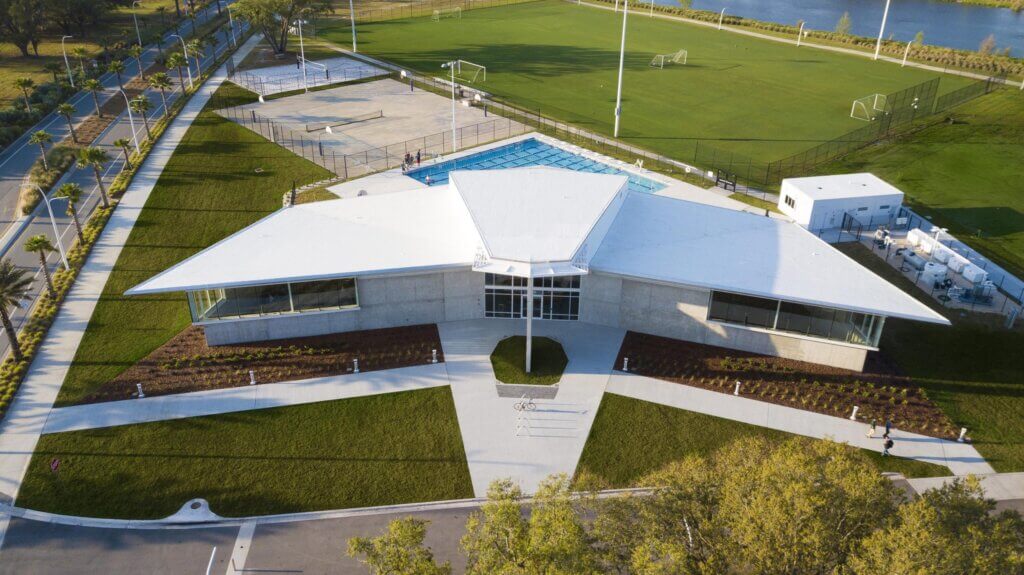Florida Southern College Lands on the Princeton Review’s “Best Colleges” List
Florida Southern College has landed on The Princeton Review’s 2024 guide of The Best 389 Colleges, selected for its engaged learning environment, beautiful campus, the expertise its professors possess, its theater program and career services.
“I am always happy when the college is recognized nationally for the excellence that is a hallmark of our living-learning communities,” said Anne Kerr, president of FSC for nearly 20 years. For some families, it is external validation of the extraordinary quality of our academic programs. The faculty are pleased to see the results of their hard work recognized among the best colleges in the nation. We all celebrate achievement moments when these accolades are given.”
Founded in 1883, Florida Southern is the oldest private comprehensive college in the state of Florida. Enrollment is over 2,700 students.
Along with its overall excellence, The Princeton Review also recognized FSC in several other areas, including:
- #6 Most Beautiful Campus: FSC is the largest single-site collection of famed architect Frank Lloyd Wright’s work. That, along with gardens and fountains, and sitting along Lake Hollingsworth in Lakeland, add to its beauty.
- #15 Best College Theater: Its theater program is noted for bringing live performances to the Polk County community.
- #16 Professors Get High Marks: Its professors have been recognized for expertise in their fields and their exceptional teaching and mentorship abilities. They showcase the college’s commitment to academic excellence.
- #18 Best Career Services: The college offers students comprehensive career services that prepare them to enter the workforce. Ninety-eight percent of the Class of 2022 had jobs upon graduation.
The Princeton Review
Rob Franek is the editor-in-chief of The Princeton Review and lead author of The Best 389 Colleges. He said the rankings were created to “provide a resource for college applicants that helps them answer what may well be the toughest question in their college search. ‘What’s the best school for me?’”
The schools, listed in alphabetical order, reflect “our high opinion of the schools. We recommend each one as academically outstanding,” he said. “Our ranking lists reflect the opinions of the school’s students—their customers—and their reports to us about their campus experiences.”
Lauren Albaum is the vice president of Student Life at FSC. She said: “Continually being recognized for excellence in outcomes and academic programs sends a clear message to students. It shows FSC is committed to student success and support. For students, this means they can expect high-quality services and resources, enhancing their experience and post-graduation prospects. Staff and faculty can take pride in their contributions to students’ success. They know that the ranking reflects positively on our institution’s commitment to holistic student development.”
Engaged Learning
Kerr and others take pride in the college’s “engaged leadership learning.” According to the president, its definition varies in each college.
“For example, business students apply concepts they learn in various classes to projects for both case competition situations, projects for companies and real-world situations,” Kerr said. “FSC students prepared a strategic plan for the local Speech & Hearing Center’s board that recommended, based on their research, that it relocate. Sometimes, companies provide a case problem that students use to supply a decision regarding various parameters to be addressed. This is an example of students applying concepts they are taught in their classes. It also involves critical thinking, synthesizing information, leading/participating in group dynamics and being individually well prepared to contribute to the analysis and decision-making process.”
Engaged learning is easier to understand in other disciplines. For example, nursing and education, where students can learn in health-related settings and classrooms, respectively, she said.
“Science students also are introduced to engaged learning early in their program of study in order to apply the learning concepts they cover in classes in their group and individual research projects.” Kerr said. “Each discipline covers engaged learning in a different and exciting way that creates a meaningful learning experience.”
Frank Lloyd Wright
Kerr praised Wright as a pioneer in engaged learning. “His studio method of teaching architecture, especially the apprenticeship program, resulted in architects who were well educated in not only superior design, but also building/construction of the structures they worked on through the years. He understood that lessons were even more powerful when students were challenged to apply concepts, rather than have primarily textbook-only learning.”
The connection between teaching and becoming one of the country’s greatest architects is not lost. “I like that our innovative and creative engaged learning pedagogy also reflects the educational philosophy of one of the greatest architects in the world, and which is especially precious for this campus that represents the largest, single-site collection of his work in the world,” she said.



